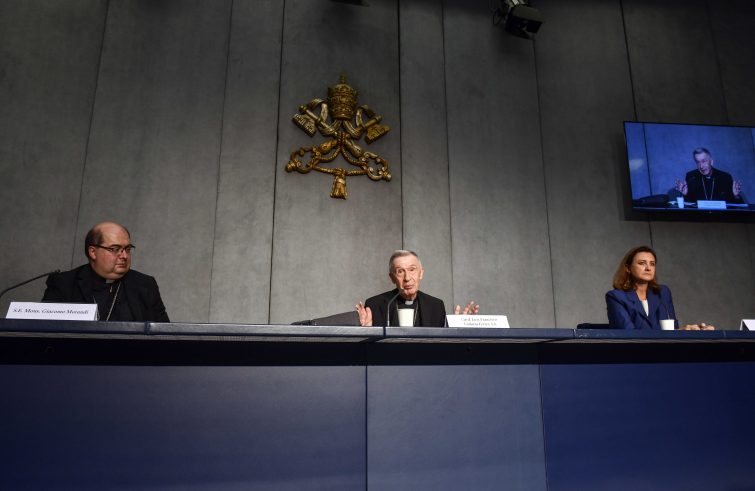
“Euthanasia is an act of homicide that no end can justify and that does not tolerate any form of complicity or active or passive collaboration.” The claim is reiterated in the Letter Samaritanus bonus on the care of persons in the critical and terminal phases of life, by the Congregation for the Doctrine of the Faith, presented today in the Vatican press room. The document denounces “the notion of ‘dignified death’ as measured by the standard of the ‘quality of life,’” along with a so-called “compassionate” euthanasia which holds that “it is better to die than to suffer, and that it would be compassionate to help a patient to die by means of euthanasia or assisted suicide.” Conversely, from a Christian perspective, “human compassion consists not in causing death, but in embracing the sick, in supporting them in their difficulties, in offering them affection, attention, and the means to alleviate the suffering.”
“The uninfringeable value of life is a fundamental principle of the natural moral law and an essential foundation of the legal order”, highlights the document, reiterating a firm rejection of laws “that legalize euthanistic practices,
resulting in the death of the sick” in the name of individualism and of “the most hidden malady of our time: solitude.” Hence euthanasia and assisted suicide are inadmissible “even where these practices have been legalized”, adopting “protocols viewed in a euthanistic perspective, with the result that neither patients nor families are consulted in final decisions about care.”
“Assisting in a suicide is an unjustified collaboration in an unlawful act”,
is the exhortation of the Holy See, referring to “practices” such as euthanasia and assisted suicide that “are never a real service to the patient, but a help to die” , sadly increasingly spreading in many Countries. Therefore, “it is gravely unjust to enact laws that legalize euthanasia or justify and support suicide, invoking the false right to choose a death improperly characterized as respectable only because it is chosen.” “There is a grave and clear obligation to oppose laws that permit euthanasia or assisted suicide – through any form of medical assistance – by conscientious objection.”
“Rather than indulging in a spurious condescension, the Christian must offer to the sick the help they need to shake off their despair”,
recalls the Pontifical Congregation. “The commandment ‘do not kill’ is in fact a yes to life which God guarantees”. “When one approaches the end of earthly existence, the dignity of the human person entails the right to die with the greatest possible serenity and with one’s proper human and Christian dignity”, the document states: “To precipitate death or delay it through “aggressive medical treatments” deprives death of its due dignity.”
“Palliative care is an authentic expression of the human and Christian activity of providing care,
the tangible symbol of the compassionate ‘remaining’ at the side of the suffering person”, is the direction indicated by the Vatican dicastery, which recommends “a resolute commitment” to extend these treatments, “in the terminal stages of life” and “as an integrated approach to the care of existing chronic or degenerative pathologies involving a complex prognosis that is unfavourable and painful for the patient and family.” The Holy See points out that palliative care “should include spiritual assistance for patients and their families, particularly when, as the end draws near, suffering is protracted by a worsening pathology.” In this phase, “the identification of an effective pain relief therapy allows the patient to face the sickness and death without the fear of undergoing intolerable pain.” The Church affirms the moral liceity of deep palliative sedation in the terminal stage with the patient’s informed consent, “in order to ensure that the end of life arrives with the greatest possible peace.” However, any administration “that directly and intentionally causes death” is unacceptable.
“Next to the family, hospice centres which welcome the terminally sick and ensure their care until the last moment of life provide an important and valuable service”,
is the recommendation of Samaritanus bonus. Even in the “vegetative state” or that of the patient in the state of “minimal consciousness”, the sick person “must be acknowledged in their intrinsic value and assisted with suitable care”, respecting their right to feeding and hydration. The document equally mentions the case of children suffering from malformation or other pathologies: “children suffering from so-called pre-natal pathologies – that will surely end in death within a short period of time – and in the absence of fetal or neo-natal therapies capable of improving their health, should not be left without assistance, but must be accompanied like any other patient until they reach natural death”, without suspension of feeding and hydration. Finally, the document reiterates a firm No to the obsessive recourse to prenatal diagnosis” along with the emergence of a culture unfriendly to disability, which often prompts the choice of abortion that is “never lawful.”










